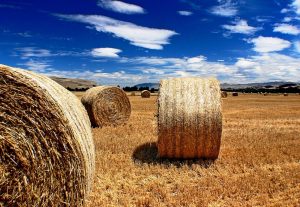Finding a model to ensure food security and reasonable prices, while striving to increase sustainability and reduce global warming.
.
Last month, the MP for Honiton and Chair of the Environment, Food and Rural Affairs Committee, pushed for changes to government proposals:
Neil seeks amendment to uphold high standards in trade deals | Neil Parish
Neil Parish: Why my animal welfare amendment should be supported tomorrow | Conservative Home
Inside the big Tory row over food standards as Boris Johnson eyes post-Brexit trade deals
.
Richard Young, Policy Director at the Sustainable Food Trust, writes a personal account: here are a few excepts:
.
 What’s the future for England’s farmers?
What’s the future for England’s farmers?
The Agriculture Bill will take over from the Common Agricultural Policy on 1 January 2021, as the principal legislation governing farm support once the Brexit transition period has ended.
The Bill, now approved by the House of Commons and under consideration by the House of Lords, has come to wider attention in relation to the trade deals the UK is currently negotiating with the US and other countries. A concerted attempt to amend the Bill by Conservative MPs Simon Hoare and Neil Parish was defeated, despite support from about 20 other rebel MPs who defied a 3-line whip and voted with opposition parties. Their amendments sought to force the Government to make good on promises in its election manifesto and elsewhere, not to undermine UK farmers or let down UK consumers by importing food from countries where it is produced to animal welfare and environmental standards that would be illegal in the UK.
…
The biggest shock
While Defra talks about the Bill supporting farmers, it is now totally clear that the Government expects a large number of family farms to go out of business as a result of the switch from the CAP to the Agriculture Bill…
So, it seems to me that the Government has chosen to rely even more on imported food from countries where wages and production standards are lower and let market forces drive grazing livestock and even some arable farmers out of business, while actually giving another twist to the spiral of farm intensification. Is it a coincidence that influential Treasury advisor and friend of Dominic Cummings, Tim Leunig, believes we don’t need farmers or fishermen in the UK at all? Might he even be the mastermind behind the Agriculture Bill?
The House of Lords will be considering the Bill again in early July. We most hope they can make some important changes. Either way, however, peers won’t be able to correct the fundamental weaknesses of the Bill. One day, either weather extremes or yet another virus will disrupt the supply of imported food. I feel we may then look back and realise that the CAP, still far from perfect but continually reforming, had a better model to ensure food security and reasonable prices, while genuinely striving to increase sustainability and reduce global warming. And we could have adopted that model outside the EU and improved it, rather than choosing the precarious and very uncertain path we are on.
For now, I’ll continue to make hay when the sun shines and try to avoid the obstacles to staying in business, but I can’t help wondering for how many more haymaking seasons our farm will remain financially viable.
What’s the future for England’s farmers? – Sustainable Food Trust – Sustainable Food Trust
.
photo: Haymaking free image | Peakpx